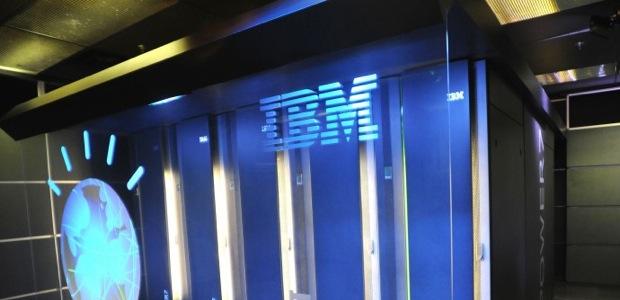 Having proven itself to be better at television quiz shows than the most impressive human specimen available, IBM’s supercomputer (and Jeopardy champion) Watson is moving onto new challenges, like trying to make humans better. Not in the scary genetically-engineered-for-our-new-robot-overlords way – at least, not that we know of – but in the literal, “You’re sick and I want to heal you” manner. Yes, that’s right: Watson is becoming a doctor. Arthur Conan Doyle would be so proud.
Having proven itself to be better at television quiz shows than the most impressive human specimen available, IBM’s supercomputer (and Jeopardy champion) Watson is moving onto new challenges, like trying to make humans better. Not in the scary genetically-engineered-for-our-new-robot-overlords way – at least, not that we know of – but in the literal, “You’re sick and I want to heal you” manner. Yes, that’s right: Watson is becoming a doctor. Arthur Conan Doyle would be so proud.
To be fair, Watson isn’t being used to actually come up with treatment for patients just yet. Instead, as New Scientist reports, he’s being used to help diagnose them in the first place. Watson’s new purpose is to use the same system that helped it recognize questions from Alex Trebek and find the appropriate answers to listen to patients describe their symptoms and cross-reference it with a database of known medical conditions.
Early tests have demonstrated that he’s nowhere near ready to be rolled out with any sense of expectation as to his performance; participating to Doctor’s Dilemma, the American College of Physicians’ annual competition for trainee doctors that quizzes them on their ability to correctly identify ailments, Watson only scored a 50 percent hit rate, and so has been sent back to study. “Given data on a new patients,” New Scientist’s Jim Giles explained, “Watson looks for information on those with similar symptoms, as well as the treatments that have been the most successful. The idea is it will give doctors a range of possible diagnoses and treatment options, each with an associated level of confidence.” Essentially, Watson will be a tool to help Doctors reach the right conclusions earlier than they may have otherwise arrived at them.
Everyone involved with the Watson trials seems confident of its ultimate success down the line. “Watson really has great potential,” Doctor William Audeh of the Cedars-Sinai Medical Center in Los Angeles reported. “Cancer need it most because it’s becoming so complicated so quickly.” Larry Norton, a doctor at New York’s Memorial Sloan-Kettering Cancer Center agrees. “It’s a machine that can read everything and forget nothing,” he said when talking about the benefits of incorporating the super computer with current diagnostic services.
Of course, this is nowhere near the first time that computers have been used to help doctors diagnose patients; when you consider the massive amounts of medical technology available today for both diagnosis and treatment, Watson’s insertion into the sequence seems more like an evolution than any grand statement about what robots can bring to the field. But what it will bring that seems most welcome to those involved in the trails is the increase in speed. “Now it can take up to a couple of days [to cross-reference symptoms with possible diagnoses],” explains Cindy Wakefield of US insurance company WellPoint. “We hope Watson can return the accurate recommendation in a matter of minutes.” Think of Watson as the real-life version of fictional television detective House MD – Just with a nicer personality.


